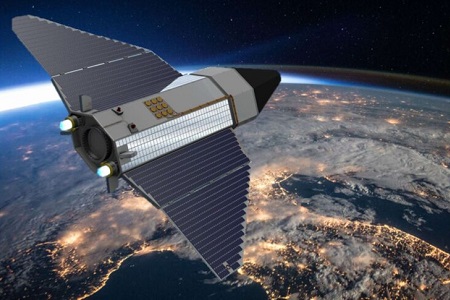
Thales Alenia Space has signed a study contract with the European Space Agency to pave the way for small multi-mission satellites to operate in Very Low Earth Orbit (VLEO).
The Phase A/B1 study will advance the design of Skimsat demonstrator, a VLEO multi-mission (<300km) satellite that aims to significantly reduce the cost of Earth observation whilst increasing performance by operating at substantially lower altitudes. The highly modular, compact flexible satellite will capitalise on developments in high-efficiency electrical propulsion to compensate for air drag.
The compact size of Skimsat will allow it to be compatible with the launchers designed for small satellites concerning dimensions, such as those currently being developed in the UK, to provide customers with substantially shorter lead times than traditional satellite launchers of similar capability.
The study is being led by Thales Alenia Space in the UK and QinetiQ Space team in Belgium and is funded under ESA’s Discovery Preparation and Technology Development (DPTD) activities. Payloads using the multi-mission Skimsat platform will be identified as part of the study for an In Orbit Demonstration to show applications in VLEO prior to the first commercial mission. This new initiative is fully included in the new space approach of Thales Alenia Space and reflects the company’s capability to address disruptive needs in partnership with smaller companies.
Commenting on the contract, Andrew Stanniland, CEO of Thales Alenia Space, said: This important study for an In Orbit Demonstration in VLEO brings together the technical excellence from our pioneering teams based in the UK, working in close partnership with QinetiQ Space team in Belgium. The Skimsat concept is a revolutionary innovation that stands to completely change the Earth observation market by challenging the traditional use of high altitudes that avoid air drag and by creating a new business model for high-resolution imaging by using a short lifetime and lead time and thus offering the market the benefit of more cost-effective satellites.”
Frank Preud’homme, Sales and Business Development at QinetiQ in Belgium, added: “We are excited for the development of the next generation platform for satellites. We are happy to provide our customers with the quality, reliability and know-how of the PROBA platforms combined with the advantages of flying in Very Low Earth Orbit. We look forward to working with Thales Alenia Space and making this a reality.”
Stefanie Kohl, ESA System Engineer, commented: ”This development activity will pave the way to address and validate the specific needs and challenges related to a flight in a very low Earth orbit. This will open up new opportunities for innovative applications either for the commercial market or the science community.”












Add Comment